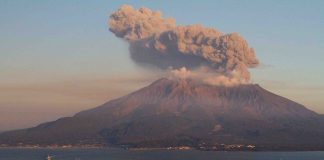Indonesia expects to finalise its free trade agreement with the European Union by the end of June, marking the culmination of nearly a decade of negotiations aimed at deepening economic ties between the world’s largest trading bloc and Southeast Asia’s largest economy.
Speaking in Brussels following a meeting with EU Trade Commissioner Maroš Šefčovič, Indonesia’s Coordinating Minister for Economic Affairs, Airlangga Hartarto, said the two parties had reached a “mutual understanding” on key outstanding issues. In a formal statement issued on Saturday, he confirmed that both sides were “ready to announce a conclusion of substantial negotiations by the end of June 2025.”
The agreement, once concluded, is expected to grant Indonesia zero-tariff access for 80% of its export products to the EU. It will also include the removal of a number of non-tariff barriers, thereby facilitating greater market penetration for priority Indonesian sectors such as footwear, textiles, palm oil, and fishery products.
At a press conference in Jakarta, Hartarto said the trade pact would “significantly boost Indonesia’s exports and integration into European value chains,” particularly in light of increasing global competition and the country’s ongoing efforts to diversify trade partners.
Negotiations between the EU and Indonesia first began in 2016 under the framework of the Comprehensive Economic Partnership Agreement (CEPA). Talks had previously stalled over a range of issues, including EU environmental regulations and Indonesia’s industrial policies.
Among these contentious issues is the EU’s regulation targeting products linked to deforestation—a point of friction with Jakarta, particularly given its position as one of the world’s largest palm oil producers. While Hartarto stated that deforestation-related measures were not formally part of the free trade negotiations, he indicated that Commissioner Šefčovič had “promised to provide special treatment towards Indonesia” on this matter. No further details were provided.
The EU has yet to confirm this commitment. Denis Chaibi, EU Ambassador to Indonesia, said only that negotiations were continuing and a detailed communication would follow “once an outcome is reached.” He declined to comment specifically on the suggestion of special treatment for Indonesia under the bloc’s deforestation legislation.
Beyond market access, the agreement is expected to include provisions concerning investment facilitation, the automotive sector, and the trade of critical minerals—areas of growing importance given Indonesia’s resource endowment and the EU’s interest in securing reliable supply chains.
Indonesia’s local content requirements for certain products, particularly in the automotive and electronics sectors, had also been a point of EU concern during the negotiations. These rules, which oblige manufacturers to use domestically produced components, have drawn criticism from some trade partners who view them as protectionist. It remains unclear how these provisions will be addressed in the final text of the agreement.
In economic terms, the EU is Indonesia’s fifth-largest trading partner. According to official EU data, bilateral trade amounted to €27.3 billion in 2024. EU exports to Indonesia stood at €9.7 billion, while imports from Indonesia totalled €17.5 billion. Hartarto said he anticipates Indonesian exports to the EU could grow by more than 50% within three to four years of the agreement’s implementation.
The government in Jakarta has placed increasing emphasis on the conclusion of free trade agreements as a means of mitigating the impact of external headwinds, including rising protectionism in the United States. Indonesian policymakers view the EU pact as part of a broader diversification strategy intended to reduce reliance on any single market and enhance resilience amid shifting geopolitical dynamics.
The expected deal with the EU follows a series of regional and bilateral trade initiatives undertaken by Indonesia in recent years, including agreements with the European Free Trade Association (EFTA) and a planned accession to the Comprehensive and Progressive Agreement for Trans-Pacific Partnership (CPTPP).
Should the EU–Indonesia agreement be finalised this month as projected, it will mark one of the most significant bilateral trade developments for either party in recent years, potentially setting a precedent for further engagement between the EU and other ASEAN economies.
Details of the final agreement, including any provisions for implementation timelines, safeguards, and dispute settlement mechanisms, have not yet been made public. A formal signing ceremony is expected to take place later this year, pending the completion of legal scrubbing and ratification processes on both sides.
Read also:
China Signals Readiness to Expedite Rare Earth Exports to the EU as Trade Negotiations Advance



